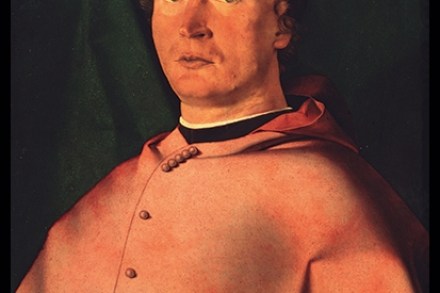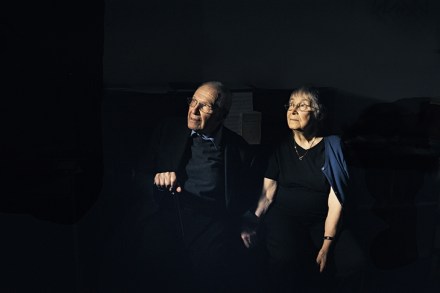Books and Arts – 15 November 2018


The good, the bad and the ugly in books, exhibitions, cinema, TV, dance, music, podcasts and theatre.
Pinter Three appeals to opposite poles of the play-going spectrum. The birdbrains like me will enjoy the music-hall sketches while the goatee-strokers will have fun pretending that Pinter’s deadly earnest memory plays are worth seeing. Watching the first piece, Landscape, is like receiving a jigsaw puzzle in instalments. Two characters, Duff and Beth, speak to

Fantastic Beasts: The Crimes of Grindelwald is the sequel to the Harry Potter prequel Fantastic Beasts and Where to Find Them, and either J.K. Rowling’s plots are now so labyrinthine she makes your average John le Carré look like Noddy, or I failed to put in sufficient homework, or it’s a plain mess. Whichever, I

Grade: A+ Ooh, you can have some fun with this when the unwanted guests swing by this Christmastide. These are the ‘greatest hits’ of a serially indulged caterwauling loon with the political disposition of a spoiled seven-year-old, redone to make them even worse than they were before. So, put on ‘Why’ as you hand around

The opening episode of BBC1’s Dynasties — the new Attenborough-fronted series from the Natural History Unit — introduced us to ‘a territory ruled by a strong and determined leader: an alpha male known as David’. Despite what you might think, though, this wasn’t a reference to the Natural History Unit itself, but to a troop


You can, perhaps, glimpse Lorenzo Lotto himself in the National Gallery’s marvellous exhibition, Lorenzo Lotto: Portraits. At the base of an altarpiece from 1541 a gaggle of paupers stretch their arms up in hopes of receiving the charity being handed out by Dominican friars above. One of these, a bearded, red-robed man, is supposed to

Amid all the remembrance, Radio 3 came up with a simple yet effective way of reflecting on war’s impact. Threaded throughout the day on Sunday were ‘sonic’ memorials, three minutes of silence, or rather opportunities to stop and reflect. Not the music of a requiem mass, or a lonesome bugle, but the sounds of those

Every era has its western. For 30 years, from The Big Trail through to The Searchers, John Wayne reigned supreme across American cinema, a dispenser of justice forged on the battlefields of the Civil War. Then, from the 1960s, John Ford’s foundations were mixed with Italian influences to create the brutal anti-heroes of the spaghetti

‘What passing-bells for these who die as cattle?’ We’ve heard a lot, lately, of the knell that tolls through the opening bars of Benjamin Britten’s War Requiem, and at Liverpool’s Anglican cathedral it was played on actual church bells. The Royal Liverpool Philharmonic Orchestra’s percussionist Graham Johns has had a set specially cast, and as

At 8.45 p.m. I was back in the toilets again feeling pure terror. In front of me was a narrow window which I thought I might be able to squeeze out of if I dislocated both my shoulders. This seemed a more attractive proposition than the alternative: leaving the loo and stepping out on stage
Orhan Pamuk, writing about Vladimir Nabokov’s masterful memoir Speak, Memory, noted that there was a particular ‘thrill’ for the writer who calls ‘something wholly autobiographical fiction, something wholly fictional autobiography’. When Nabokov did this, Pamuk said, it changed ‘the secret centre of the story’. The fertile interplay of fact and fiction animates a pair of

When Japan hosts the Rugby Union World Cup next year, and still more so the summer Olympics in 2020, all eyes will be on its omotenashi (hospitality), perhaps its technology, certainly its efficiency, but there will be little thought of symbolism. Not so for the 1964 Tokyo games, when the Olympic flame was carried up

The age of Garrick, Norman Poser, a law professor, insists, gave us much of what we take for granted today in the theatre: ‘naturalistic’ acting, and, as Dr Johnson remarked, the very idea of the business of acting as a profession. Hence this book’s portentous title. Its curtain raiser trumpets themes of fame, personality, interiority

Today Munich is a prosperous and peaceful place — Germany’s most affluent, attractive city. Wandering its leafy avenues, lined with handsome apartments and shiny new BMWs, it’s hard to picture anything remotely revolutionary happening here. However, exactly 100 years ago this cosy bastion of conservatism was overrun by one of Europe’s most unlikely revolutions, led


There are probably no more gifted professional gardeners in England than Jim Buckland and Sarah Wain, husband and wife and joint head gardeners at West Dean in Sussex. On the verge of their retirement, after 27 years of effecting a renaissance in the gardens and grounds of this country house arts centre (bequeathed by Edward

‘I hate Indians. They are a beastly people with a beastly religion’, said Winston Churchill as prime minister in 1942, to his secretary of state for India, Leo Amery. Like John Nicholson, Churchill had soldiered on the subcontinent as a young man, and both men saw fighting on the North-West Frontier. Nicholson was a career

Boxing writers sometimes try to make comparisons across weight groups. They used to say, for example, that Floyd Mayweather was the best pound-for-pound fighter in the world. Saul Bellow for many years has had the reputation of the best page-for-page writer. Every paragraph has something that arrests you: an image, an insight, a line of

Daniel Swift I feel as though I came late to the Sarah Moss party. Nobody told me she was this divided country’s most urgent novelist. Her themes: the cycles of history, male absurdity, the forms female subversion may take, in irony, sickness and sacrifice. It helps that she’s absurdly topical, and that she’s funny. Her
Arriving in Budapest, I receive a summons I cannot refuse. Gyorgy Kurtag wants to see me. Famously elusive, the last of the living avant-gardists is about to present his first opera at La Scala Milan this month and, if past form is anything to go by, he’s unlikely to utter much about it beyond a

A cascade of poppies falls from ‘weeping windows’ across Britain. A 50-metre drawing of Wilfred Owen appears in the sand, and is washed away by the sea in which he swam. A silhouetted soldier stands on the white cliffs of Dover. A thousand pumpkins ‘recall’ an antisubmarine airship. You can pretend you are in no-man’s-land

‘I want big things to do and vast spaces,’ Edward Burne-Jones wrote to his wife Georgiana in the 1870s. ‘And for common people to see them and say, “Oh! — only Oh!”’ That, however, was only the first part of my own reaction to the exhibition at Tate Britain of Burne-Jones’s works. Perhaps I’ve got

So there I was in Soho Square on a cold and rainy morning, nibbling my complimentary almond croissant and eagerly looking forward to the advance preview of Mike Leigh’s new historical epic Peterloo. This People’s Uprising of 1819, and its brutal suppression by a wealthy, uncaring and out-of-touch metropolitan elite, took place precisely 200 years


Let’s get the ‘was-it-good?’ stuff out of the way first. Yes, it was good. It was better than good. It was incredible, fabulous, dazzling. It was whatever adjective you want to throw at it. I can’t recall seeing a more engrossing pop production, ever. You don’t just get great songs — come on, you’re not

‘It was so unreal,’ said one of the first world war veterans about the long-awaited Armistice. It was the most striking thought I heard all week, and the most shocking. The sense that when the guns finally fell silent at 11 o’clock on 11 November 1918 (and both sides had continued to barrage each other

I wonder if Wisconsin has any idea what an international embarrassment it has become? By rights it ought to be an unexceptionable place, little more than the quirky answer to the occasional trivia question: ‘Where is the Badger State?’; ‘Whose state governor shares a name with the singer of “The Sun Ain’t Gonna Shine (Anymore)?”’;

Lauren Gunderson’s play I and You opens in the scruffy bedroom of 17-year-old Caroline. Lonely, beautiful and furious, she’s unable to participate in school life owing to a chronic liver problem. Into her hideaway barges Anthony, a handsome geek, who wants her to help with a Walt Whitman project. Caroline tries to chase him off

Rupert Christiansen’s City of Light opens on the evening of 5 January 1875, with the inauguration of Paris’s new opera house, designed by Charles Garnier ‘in a style of unabashed grandeur’, with its gilded and mirrored salons, shimmering candelabra and marbled colonnades, mosaics, statues, frescoes and ‘flaming gas torches enhancing a central stairwell that turned

You could call The Remainder a literary kaleidoscope: look at it one way and you see how the past lays a crippling hand on the generation that follows political catastrophe; shift the focus and you’re plunged into a darkly comic road trip with a hungover trio in an empty hearse chasing a lost coffin across